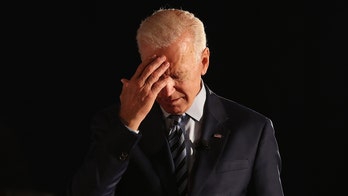HOUSTON – Texas' March primary will likely be delayed after the Supreme Court on Friday blocked the use of state legislative and congressional district maps that were drawn by federal judges.
The court issued a briehe Mexican-American Legislative Caucus, which participated in the San Antonio lawsuit, said it was "deeply concerned" about the potential disruption of the 2012 election schedule.
"Our resolve remains stronger than ever and our commitment to minority voting rights unwavering," he said in a statement. "If there ever was a textbook case of Voting Rights Act violations, this is it. We look forward to making our case before the United States Supreme Court."
Lawmakers redraw districts every 10 years to reflect changes in population reported by the census, and Texas is adding four U.S. House seats based on population gains in the 2010 census. Texas' Republican-controlled Legislature drew up new maps earlier this year, but minority groups sued in federal court in San Antonio, claiming the plan didn't reflect the growth in the state's Hispanic and black populations.
The San Antonio court issued new maps while it decided the case. The judges reasoned that the state would be unable to hold elections without the temporary maps.
The maps appeared to give Democrats a greater chance of winning seats in the state House and Senate than did the plans approved by those bodies and signed into law by Republican Gov. Rick Perry.
Minorities currently are the majority in 10 of Texas' 32 congressional districts. The new court-drawn map would have raised that to 13 out of 36 districts, an outcome the judges said better reflected the growth in the state's Hispanic population.
In the second of two separate court cases in the redistricting fight, a federal court in Washington has refused to approve the Legislature's redistricting plan without a trial, agreeing with the Justice Department that there was sufficient evidence to question whether it hurt minority representation.
Like other states with a history of racial discrimination, Texas can't implement new maps or other changes to voting practices without federal approval under the 1965 Voting Rights Act. The state asked a court in Washington to sign off on the maps, but those judges refused. That case is continuing.
Abbott's office has argued the Legislature's original map incorporates concerns about communities of interest and proper representation and departures from that map "undermines the democratic process."
The legal issue at the high court is whether the temporary maps should have used the state-approved plans as a starting point. The case so far does not appear to raise the broader issue of whether Texas and other states should still be subject to the voting rights law.




